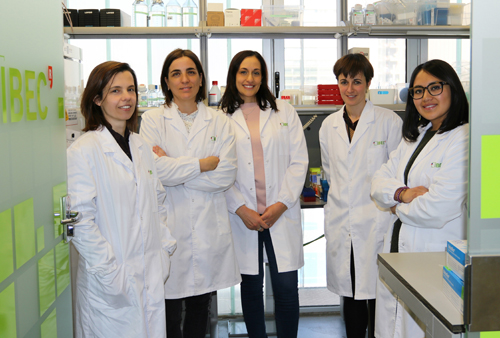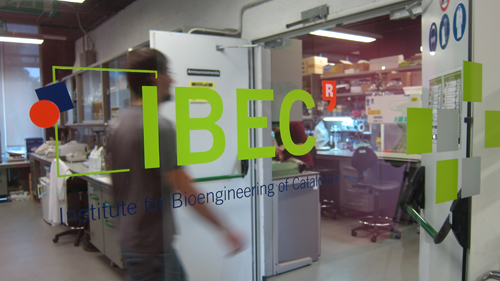IBEC PhD Discussions Complementary Skills Session: Bibliometrics
Complementary Skills Sessions are open to all staff and researchers at all career stages.
Complementary Skills Sessions are open to all staff and researchers at all career stages.
Complementary Skills Sessions are open to all staff and researchers at all career stages.
Complementary Skills Sessions are open to all staff and researchers at all career stages.
Complementary Skills Sessions are open to all staff and researchers at all career stages.

Application Deadline: 24/02/2019
Ref: PD-NM
The Pluripotency for organ regeneration group at the Institute for Bioengineering of Catalonia (IBEC) is looking for a Postdoctoral researcher to develop his/her project on the development of a Modelling Diabetic Nephropathy targeting DNA methylation: engineering the epigenome in kidney” funded by the EFSD/Boehringer Ingelheim European Research Programme in Microvascular Complications of Diabetes.
 Researchers from the IBEC have created, for the first time, 3D organoid cultures from pluripotent stem cells, which resemble human embryonic kidney tissue during the second trimester of pregnancy.
Researchers from the IBEC have created, for the first time, 3D organoid cultures from pluripotent stem cells, which resemble human embryonic kidney tissue during the second trimester of pregnancy. Using biomaterials that mimic the embryonic microenvironment, researchers have also achieved mini-kidneys with relevant features for immediate use in renal disease modeling.
A study published today in Nature Materials reports how researchers from IBEC have created organoids, or mini-organs, that resemble the human embryonic kidney, and how these 3D cultures mimic essential aspects during the formation of the kidney, such as distribution, functionality and specific organization of cells.

Application Deadline: 24/02/2019
Ref: POST-LA
The Nanoscopy for nanomedicine group at the Institute for Bioengineering of Catalonia (IBEC) is looking for a Postdoctoral researcher to develop project on the development of a new probes for super resolution imaging.
Application Deadline: 28/02/2019
Ref: PD-EE
The Biomaterials for Regenerative Therapies group at the Institute for Bioengineering of Catalonia (IBEC) is looking for a PhD to develop his/her PhD thesis project on 3D bioprinted scaffolds for bone regeneration. Research in the Biomaterials for Regenerative Therapies group is devoted to the development and knowledge transfer to industry of innovative biomaterials and scaffolds for tissue regeneration.
This agreement is the first to be established within the framework of the institute’s new initiative, the Open Innovation Lab, that offers companies and investors a platform to bring the cutting-edge research to patients and to the market faster. 
 Application Deadline: 11/03/2019
Application Deadline: 11/03/2019
Ref: LT-GB
The Molecular Bionics group at the Institute for Bioengineering of Catalonia (IBEC) is looking for a Junior Laboratory Technician Technician to support the research lines of the biology section of the team, as well as to contribute in the administrative part of the projects